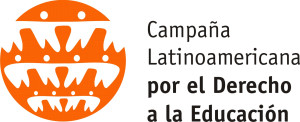Foto: Passarinho/Pref. Olinda
Brazil: In a message to the UN, the National Campaign expresses concern about the rights of children and youth
June 3, 2019
In response to a call made by the United Nations asking civil society to share the state of children's rights and sustainable development in their contexts, the Campaign sent information on the country's current regressive scenario.
In response to a call from the Office of the United Nations High Commissioner for Human Rights (OHCHR), the National Campaign for the Right to Education from Brazil sent to the agency information on the state of children’s rights in the country regarding the areas that will be the focus of the Sustainable Development Goals (SDGs) review in July this year.
The review will take place at the UN High-Level Political Forum (HLPF), to be held July 9-18 in New York, with a focus on SDG 4 (on education) as well as goals 8 (decent work and economic growth), 10 (reduction of inequalities), 13 (climate action), 16 (peace, justice and solid institutions) and 17 (partnerships to achieve the objectives).
OHCHR is preparing a report on children’s rights and the SDGs to be presented at the HLPF and, to contribute to its content, a call was made asking civil society to submit their diagnoses and recommendations.
Inputs sent by the National Campaign to the agency indicate strong risks that SGDs 4, 8 and 16 will not be achieved within the expected period, in the country, due to a series of measures implemented by the current government.
Furthermore, they present alarming data on the human rights situation in Brazil, such as: non-compliance with the National Education Plan (PNE, by its Portuguese acronym) 2014-2024; the reduction of public expenditures on education and the non-implementation of the Initial Student-Quality Cost (CAQi, by its Portuguese acronym) and Student-Quality Cost (CAQ, by its Portuguese acronym) mechanisms, which establish parameters for the financing of quality public education; thousands of children and adolescents without access to basic education; the advancement of the “Escola sem partido” (School without a Party) initiative, which intends to prohibit the discussion of issues such as politics, racial equality and gender equality and identity in schools; a reductionist perspective of early childhood education and setbacks for inclusive education and the inclusion of people with disabilities in the public system; the attempt to regulate home schooling as a way of encouraging the privatization of distance education and avoiding socialization and students’ interaction in plural contexts; the worsening situation of children and adolescents in precarious working conditions, with a labor reform that flexibilizes rights; and the closure of spaces for civil society participation in public policies, as well as the elimination of participatory administrative bodies, seriously affecting areas such as: human rights, racial equality, indigenous peoples, rural populations, LGBTI community and the environment.
“In this alarming context, we request that the OHCHR recommends the Brazilian State to restorate and strengthen democratic instances of civil society participation, as well as the reversal of current setbacks. We also demand that the government respect the UN Convention on the Rights of the Child and the observations made to Brazil by the Committee that monitors the Convention. The Committee recommended that the Brazilian State assume its responsibility to guarantee adequate financial resources for the implementation of the National Education Plan, including situations of economic crisis and political instability”, said Andressa Pellanda, executive coordinator of the National Campaign for the Right to Education.
In the report sent to the UN, the Campaign presents recommendations for the guarantee of the right to a lifelong free, inclusive, equitable and quality education for all, from a perspective of rights.





